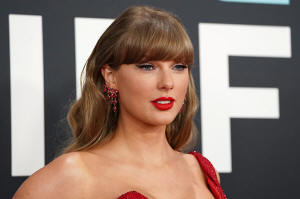Universal Music and AI song tool Udio settle lawsuit and partner on new
platform, sparking backlash
[October 31, 2025]
By KELVIN CHAN
LONDON (AP) — Universal Music Group and AI song generation platform Udio
have settled a copyright infringement lawsuit and agreed to team up on
new music creation and streaming platform, the two companies said in a
joint announcement.
Universal and Udio said Wednesday that they reached a “compensatory
legal settlement” as well as new licensing agreements for recorded music
and publishing that will "provide further revenue opportunities" for the
record label's artists and songwriters.
As part of the deal, Udio immediately stopped allowing people to
download songs they’ve created, which sparked a backlash and apparent
exodus among paying users.
The deal is the first since Universal, along with Sony Music
Entertainment and Warner Records, sued Udio and another AI song
generator, Suno, last year over copyright infringement.
“These new agreements with Udio demonstrate our commitment to do what’s
right by our artists and songwriters, whether that means embracing new
technologies, developing new business models, diversifying revenue
streams or beyond," Universal CEO Lucian Grainge said.
Financial terms of the settlement weren't disclosed.
Universal announced another AI deal on Thursday, saying it was teaming
up with Stability AI to develop “next-generation professional music
creation tools.”

Udio and Suno pioneered AI song generation technology, which can spit
out new songs based on prompts typed into a chatbot-style text box.
Users, who don't need musical talent, can merely request a tune in the
style of, for example, classic rock, 1980s synth-pop or West Coast rap.
Udio and Universal, which counts Taylor Swift, Olivia Rodrigo, Drake,
and Kendrick Lamar among its artists, said the new AI subscription
service will debut next year.
Udio CEO Andrew Sanchez said in a blog post that people will be able to
use it to remix their favorite songs or mashup different tunes or song
styles. Artists will be able to give permission for how their music can
be used, he said.
However, “downloads from the platform will be unavailable," he said.
AI songs made on Udio will be “controlled within a walled garden” as
part of the transition to the new service, the two companies said in
their joint announcement.
[to top of second column]
|

Taylor Swift arrives at the 67th annual Grammy Awards on Feb. 2,
2025, in Los Angeles. (Jordan Strauss/Invision/AP, File)
 The move angered Udio’s users,
according to posts on Reddit’s Udio forum, where they vented about
feeling betrayed by the platform's surprise move and complained that
it limited what they could do with their music.
One user accused Universal of taking away “our democratic download
freedoms.” Another said "Udio can never be trusted again."
Many vowed to cancel their subscriptions for Udio, which has a free
level as well as premium plans that come with more features.
The deal shows how the rise of AI song generation tools like Udio
has disrupted the $20 billion music streaming industry. Record
labels accuse the platforms of exploiting the recorded works of
artists without compensating them.
The tools have fueled debate over AI’s role in music while raising
fears about “AI slop” — automatically generated, low quality mass
produced content — highlighted by the rise of fictitious bands
passing for real artists.
In its lawsuit filed against Udio last year, Universal alleged that
specific AI-generated songs made on Udio closely resembled
Universal-owned classics like Frank Sinatra’s “My Way,” The
Temptations’ “My Girl” and holiday favorites like “Rockin' Around
the Christmas Tree” and “Jingle Bell Rock.”
In the “My Girl” example, a written prompt on Udio that asked for
“my tempting 1964 girl smokey sing hitsville soul pop” generated a
song with a “very similar melody, the same chords, and very similar
backing vocals” as the hit song co-written by Smokey Robinson and
recorded by The Temptations in 1964, according to the lawsuit. A
link to the AI-generated song on Udio now says “Track not found.”
___
AP Technology Writer Matt O'Brien in Providence, Rhode Island
contributed to this report.
All contents © copyright 2025 Associated Press. All rights reserved
 |